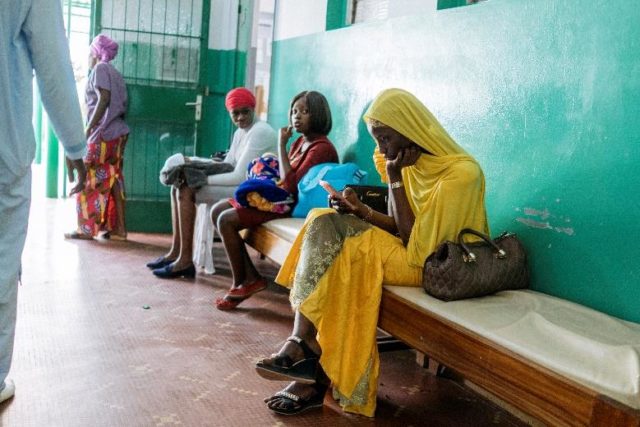
We Need to Unlock the Potential for Cities to Achieve the UN Sustainable Development Goals
April 11, 2019 — The Big Picture
More than half of the world’s population will live in cities by 2050[1]. This statistic is frequently used to indicate the rapid pace at which urbanization is occurring. What it doesn’t indicate, however, is the host of health challenges that this population growth will bring, including a significant burden on health systems, especially resulting from non-communicable diseases (NCDs).
Fortunately, cities present a real opportunity for driving innovation in healthcare delivery, as the concentration of sectors and populations that exist in cities allow for implementing change at scale. By activating cities as hubs for partnerships and innovation, I am confident we can not only rise to the challenge of achieving better health for inhabitants, but also accelerate the achievement of the UN Sustainable Development Goals.
Reimagining care is at the heart of lasting impact
Globally, our understanding and therapeutic options for NCDs have significantly increased in the last decades. Yet, they remain the world’s leading cause of death.
NCDs are the largest obstacle preventing us from achieving the United Nations’ goal of universal health coverage (UHC) by 2030. This is particularly true for low- and middle-income countries (LMICs), where health systems are overburdened by a dual or triple burden of disease that impedes progress.
Consider hypertension as an example: we know its risk factors and the gambit of preventative measures to treat the condition. Though treatment is widely available and accessible, ten million people from mostly LMICs die from its consequences every year.

Cities are instrumental for achieving the UN Social Development Goals
With their relatively accessible facilities and infrastructure, cities can incubate the innovative, person-centered solutions we need. The concentration of people and skills make cities fertile ground for public health initiatives aiming to operate at scale and improve outcomes for as many people as possible, as quickly as possible.
In addition, the large variety of services and sectors present within cities enables us to combine complementary expertise and resources to implement interventions. The opportunity to co-design at a large scale will bring together partners from a wide array of sectors, including local governments, digital organizations, food suppliers, employers, insurance funds, social enterprises, and civil societies.

Better hearts, better cities
We launched the Better Hearts Better Cities initiative after recognizing the potential for cities to tackle public health issues. Through the initiative, we aim to convene multisector partners and address the underlying risk factors of hypertension in urban environments.
By bringing together ten partners with whom bundle our expertise in health systems, the initiative has reached 1.5 million people across three continents. Partners range in size and strengths: IT and insurance sectors, food & agriculture, sports, and education. We hope the evidence on health outcomes generated through this initiative will demonstrate the effectiveness of multisector partnerships and provide support for initiatives in other cities dealing with different conditions.
Despite the rising numbers of people with NCDs, I am optimistic about the future of urban health and the tremendous potential for cities to drive the achievement of the global UN goals. While urban settings do pose challenges for our health, they also present opportunities for innovative solutions.
At the Novartis Foundation, we believe where you live should not determine your health. That is why we focus on developing innovative approaches to reimagine healthcare. By introducing digital technology, we can now enable non-traditional health players to screen as many people as possible for high blood pressure, and have hypertensive persons properly referred and administered to an appropriate health systems for timely treatments.
Creating cities that foster wellbeing in the responsibility of all. This is why we are truly proud to sponsor the NewCities’ Wellbeing City Award and look forward to celebrating the innovative and collaborative ideas that cities will be presenting.
1. https://www.un.org/development/desa/en/news/population/2018-revision-of-world-urbanization-prospects.html